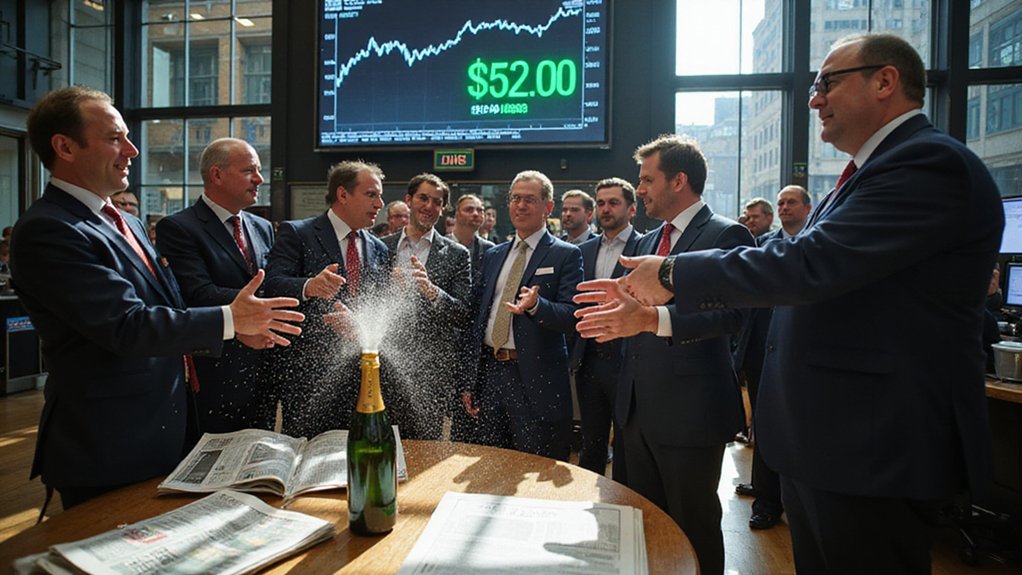eToro Group Ltd burst onto the public markets with remarkable vigor as the fintech platform priced its initial public offering at $52 per share—comfortably eclipsing its projected range of $46 to $50. This pricing decision, a full $2 above the anticipated ceiling, valorized the company at approximately $4.2 billion, signaling robust institutional appetite despite the valuation falling considerably short of its once-ambitious $10.4 billion SPAC aspirations.
The offering’s structure exhibited textbook equilibrium, with 11.9 million shares split evenly between newly issued stock and existing shareholder liquidations. This balanced approach—neither flooding the market with fresh equity nor permitting early investors to abscond entirely—netted the company roughly $620 million, a sum that handily surpassed preliminary estimates hovering around the half-billion mark. Unlike competitor Robinhood, which relies heavily on payment for order flow as its primary revenue stream, eToro has developed a more diversified business model.
Wall Street’s reception proved nothing short of effusive, with shares catapulting 29% during the maiden trading session on the Nasdaq Global Select Market under the apt ticker “ETOR.” Such post-IPO exuberance—often the financial equivalent of a standing ovation—may augur well for the fintech sector’s prospects, particularly as it emerges from the shadow of tariff-induced market volatility.
The market’s resounding embrace of ETOR signals renewed confidence in fintech’s trajectory beyond recent economic headwinds.
The syndicate marshaled to shepherd this offering represented investment banking’s equivalent of an all-star team: Goldman Sachs, Jefferies, UBS, and Citigroup assumed lead book-running responsibilities, with a supporting cast including Deutsche Bank and Bank of America, among others. The breadth and depth of this underwriting consortium underscored the transaction’s gravitas. The company currently serves investors across 75 countries with its innovative trading platform that combines social features with diverse investment options.
For eToro—a pioneer in social trading platforms that enable retail investors to mirror the strategies of more seasoned market participants—the successful offering represents both vindication and opportunity. Having previously postponed its public debut amid market turbulence, the company’s patience appears to have been rewarded with a reception that speaks volumes about investor confidence in its business model. The proceeds will ostensibly fuel expansion initiatives as eToro seeks to fortify its position in the increasingly competitive fintech landscape. Under the leadership of co-founder and CEO Yoni Assia, the company has demonstrated remarkable resilience in navigating the complex IPO market.









